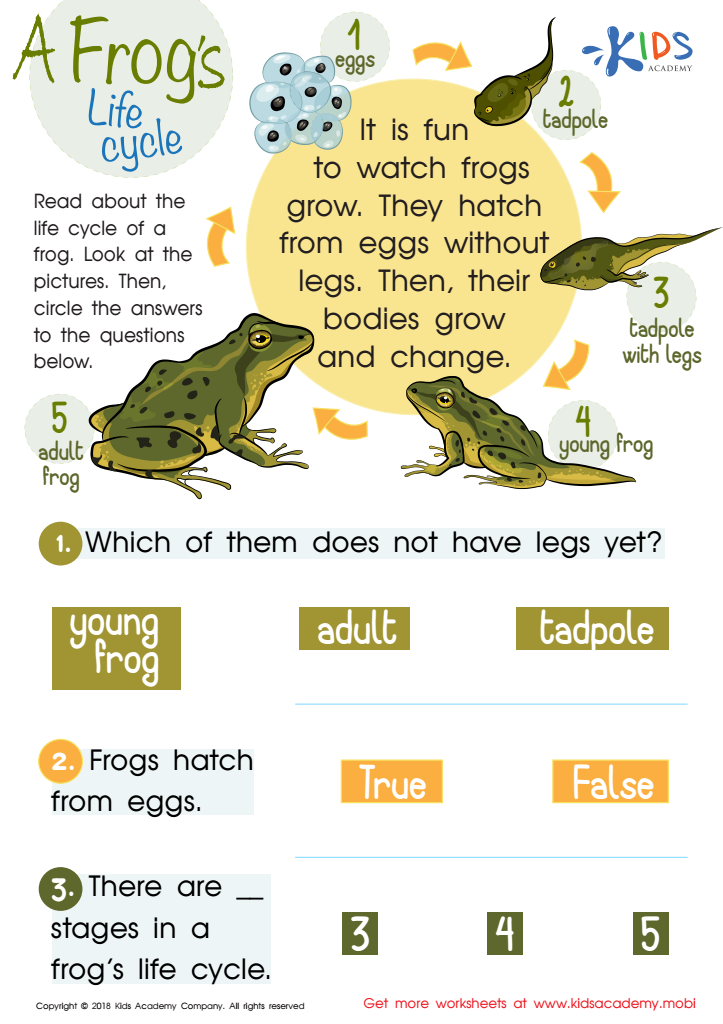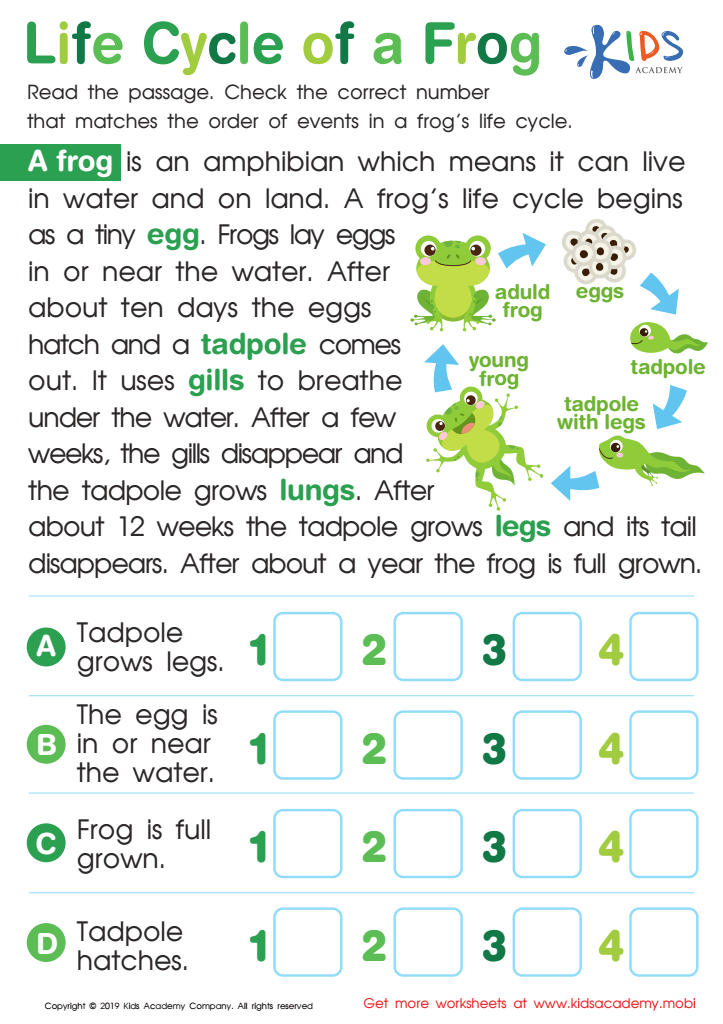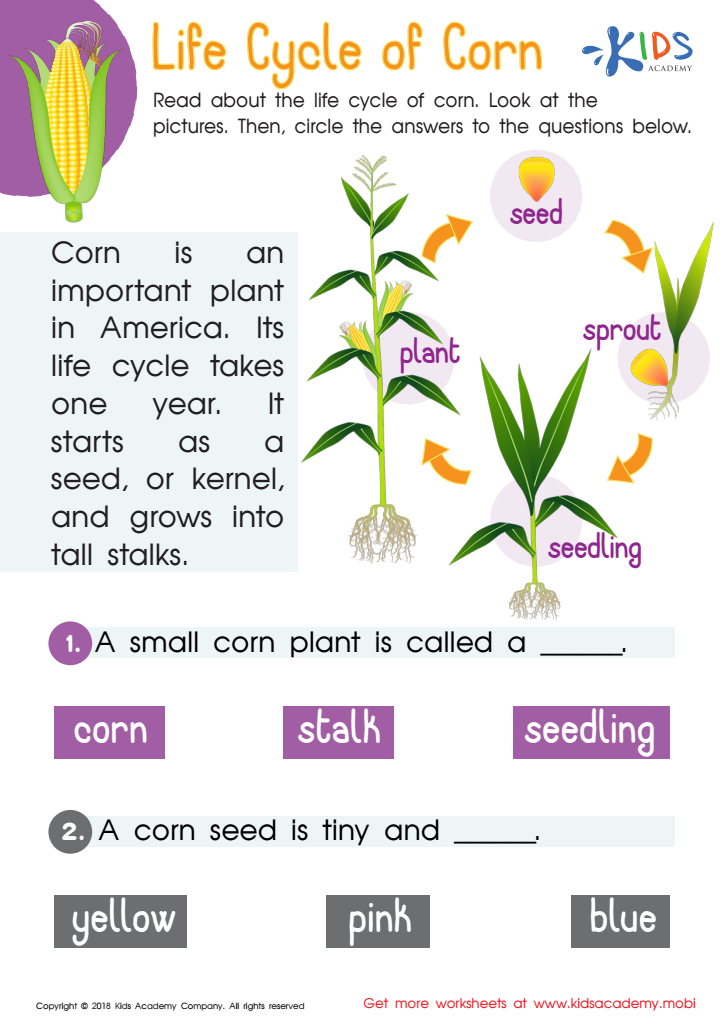Understanding life cycles Reading Non-Fiction Worksheets for Ages 7-8
3 filtered results
-
From - To
The "Understanding Life Cycles" reading non-fiction worksheets for ages 7-8 from Kids Academy offer an engaging way for young learners to explore the captivating stages of different life cycles. These skill-building worksheets are designed to enhance children's comprehension of non-fiction texts while providing fascinating insights into the natural world. With guided questions, vivid images, and thoughtful activities, they help solidify foundational skills in reading, critical thinking, and understanding scientific concepts. Ideal for classroom use or at-home learning, these worksheets ensure that children grasp essential life science topics through interactive and stimulating exercises tailored to their developmental stage.


A Frog’s Life Cycle Worksheet


Life Cycle of a Frog Worksheet


Life Cycle of Corn Worksheet
Understanding life cycles through reading non-fiction is vital for children aged 7-8. At this development stage, kids are naturally curious and start forming a foundational understanding of the world around them. Learning about life cycles enriches their comprehension of natural processes and fosters an appreciation of living organisms, from insects to plants to animals. Additionally, reading non-fiction introduces children to fact-based texts, enhancing critical thinking and information-gathering skills essential for academic success.
For parents and teachers, facilitating this learning means setting the stage for instilling a lifelong love of science and reading. It encourages active learning and the use of analytical thinking as children compare the different stages of an organism's life. Moreover, integrating non-fiction reading bolsters literacy by expanding their vocabulary and improving comprehension skills in context-rich environments.
Furthermore, understanding life cycles can teach essential values such as respect for nature and the importance of environmental stewardship. It allows children to observe and appreciate the symmetry and balance necessary for ecosystems, making abstract concepts more concrete. By caring about teaching these topics through engaging and educational non-fiction books, parents and teachers ensure that children develop both intellectually and ethically, prepared for future learning and responsible citizenship.
 Assign to My Students
Assign to My Students
















